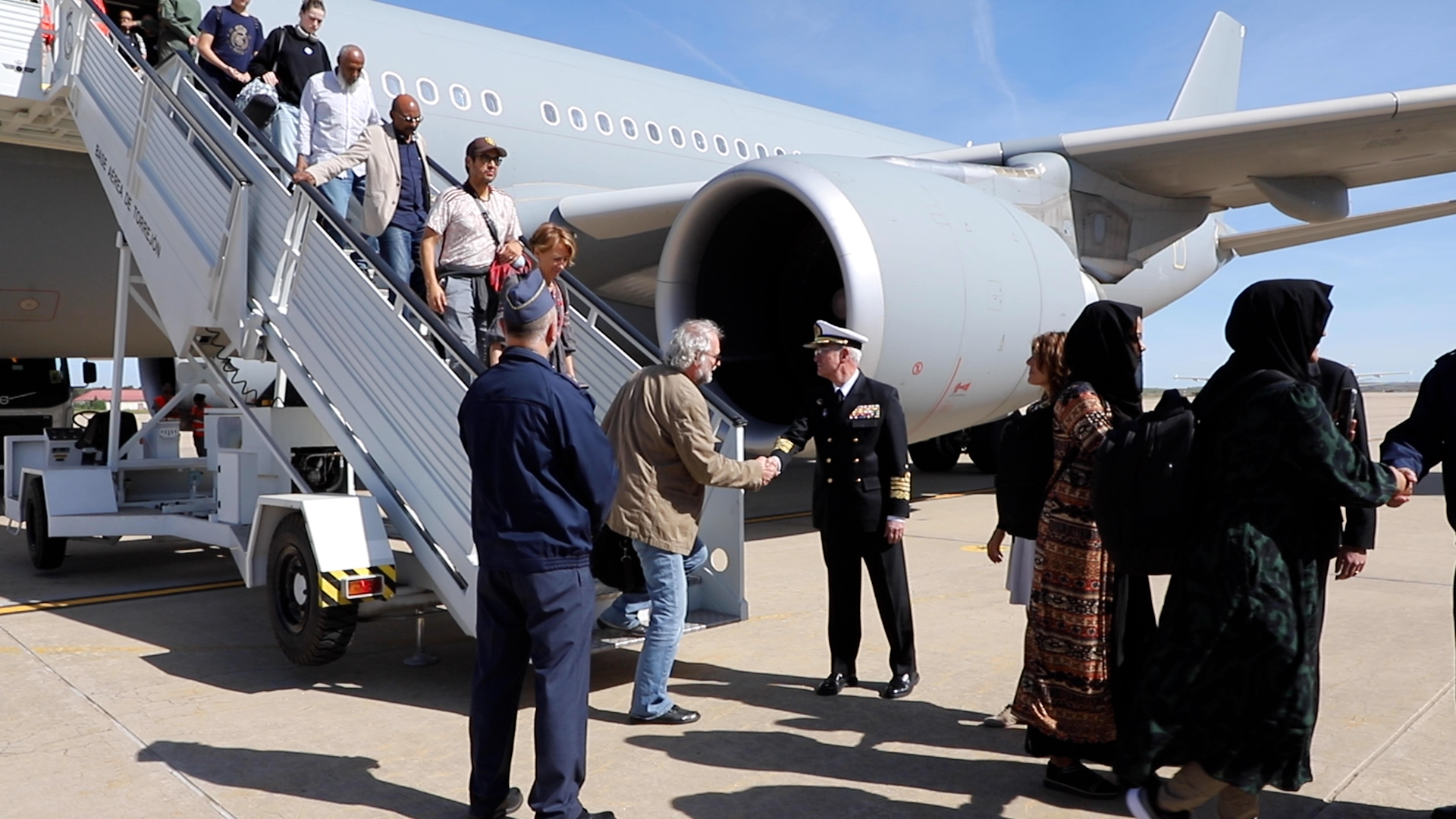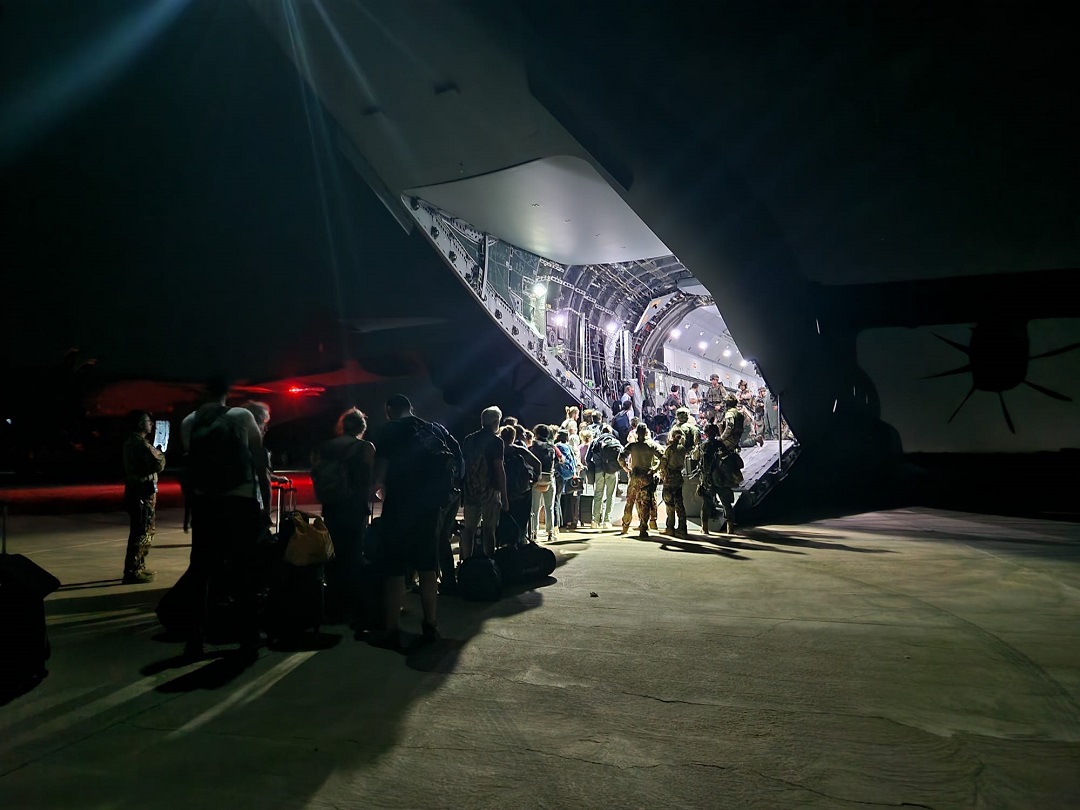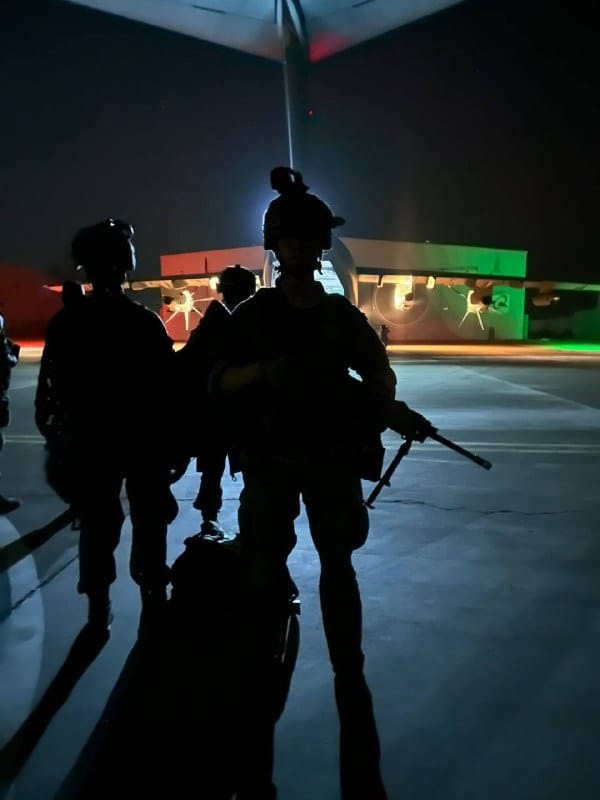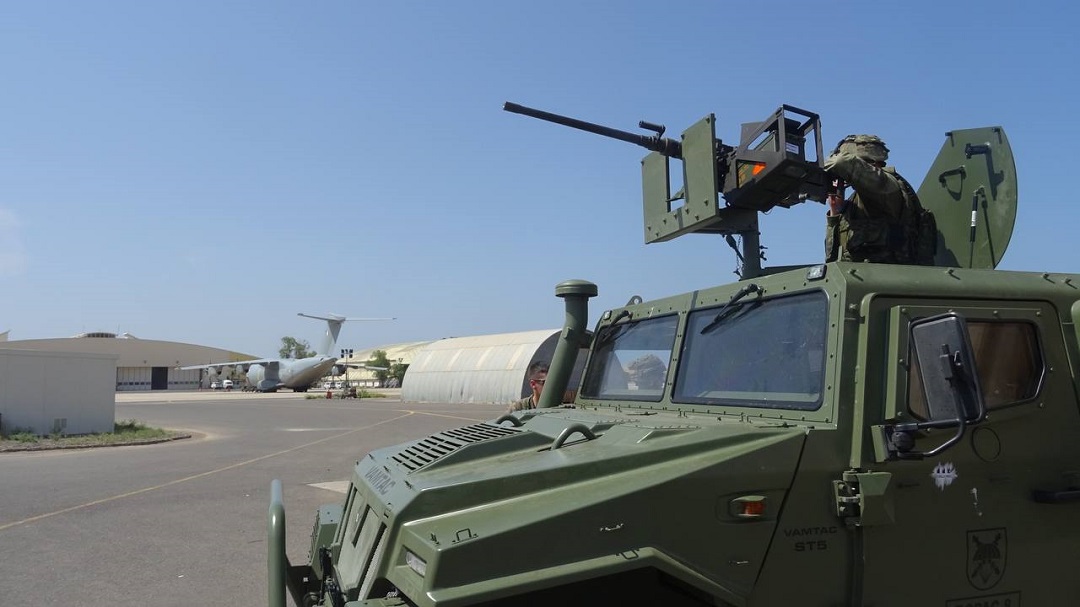
Spanish personnel evacuated from Sudan in just over 48 hours
- The Ministry of Defence has sent four aircraft and nearly 200 military personnel to support the Ministry of Foreign Affairs, European Union and Cooperation in the evacuation of Spanish personnel from Sudan
The Chief of Defence Staff, Admiral General Teodoro Esteban López Calderón, accompanied the Minister of Foreign Affairs, European Union and Cooperation, José Manuel Albares, this morning to the Torrejón Air Base to receive 72 of the more than 100 citizens successfully evacuated from Sudan. In the next few hours, the majority of the Spanish military personnel from the Spanish Army and the Spanish Air and Space Forces responsible for the operation, who are still in Djibouti, are expected to return.
This evacuation has been carried out thanks to the effective intervention of nearly 200 Spanish military personnel in an operation under the operational control of the Operations Command. Of the evacuees, 34 are Spanish and the rest are from Italy, Ireland, Mexico, Argentina, Venezuela, Portugal and Poland.
The Non-combatant Personnel Rescue Operation (NEO) began on Friday April 21st with the positioning of the first A400 aircraft at Djibouti airport, which was later joined by an Airbus A330 and two other A400s, all from the Spanish Air and Space Army.
In the last 48 hours, the aircraft have operated between Djibouti and Spain to transport the material and military personnel participating in the operation. In particular, around 90 military personnel from the 1st Parachute Brigade and the Special Operations Command of the Spanish Army, 80 members of the 31st Wing, the 45th Group, the Air Deployment Support Squadron and the Air and Space Army's Aero Evacuation Medical Unit, a reconnaissance and operational liaison team from the Operations Command and members of the Joint Special Operations Command and the JFAC (Joint Force Air Component), among others, were engaged in the evacuation.
Before starting the evacuation from Sudan, the appropriate diplomatic coordination was carried out and appropriate protective measures were put in place to await the most suitable moment for action due to the complexity of the situation.
The Spanish Armed Forces initially positioned an A400 with two VAMTAC vehicles and ground force personnel at the military airport of Wadi Seidna, north of Khartoum, to support the evacuation. A few hours later, it would be the turn of the other two A400s to complete the deployment of the entire ground force. Once the security perimeter was established, the convoy of civilian personnel began to move from the embassy to the airport, where a patrol of the ground element would meet them in a secure area. Once there, the A400 transported the more than 100 civilians to Djibouti. Of these, a total of 72 people flew to Spain on an Airbus A330 and the rest remained in Djibouti to return to their respective countries by other means.
It should be noted that Djibouti has been supported by the personnel of the Orion Detachment - currently deployed in Operation Atalanta - which has become a forward base for the deployment of the evacuation operation. Its 49 military personnel have facilitated the deployment from national territory of the air and ground resources involved in this complex operation. Specifically, they have been in charge of administrative and customs formalities, accommodation, food and transport, airport management and slots at the international airport, as well as multinational coordination with the different contingents in Djibouti: American, French, Italian, Japanese and British. The demands of tactical air operations in critical phases such as loading and unloading, provisioning and coordination for the strategic evacuation of citizens to national territory has been a major challenge that has been successfully completed.
Fotos





